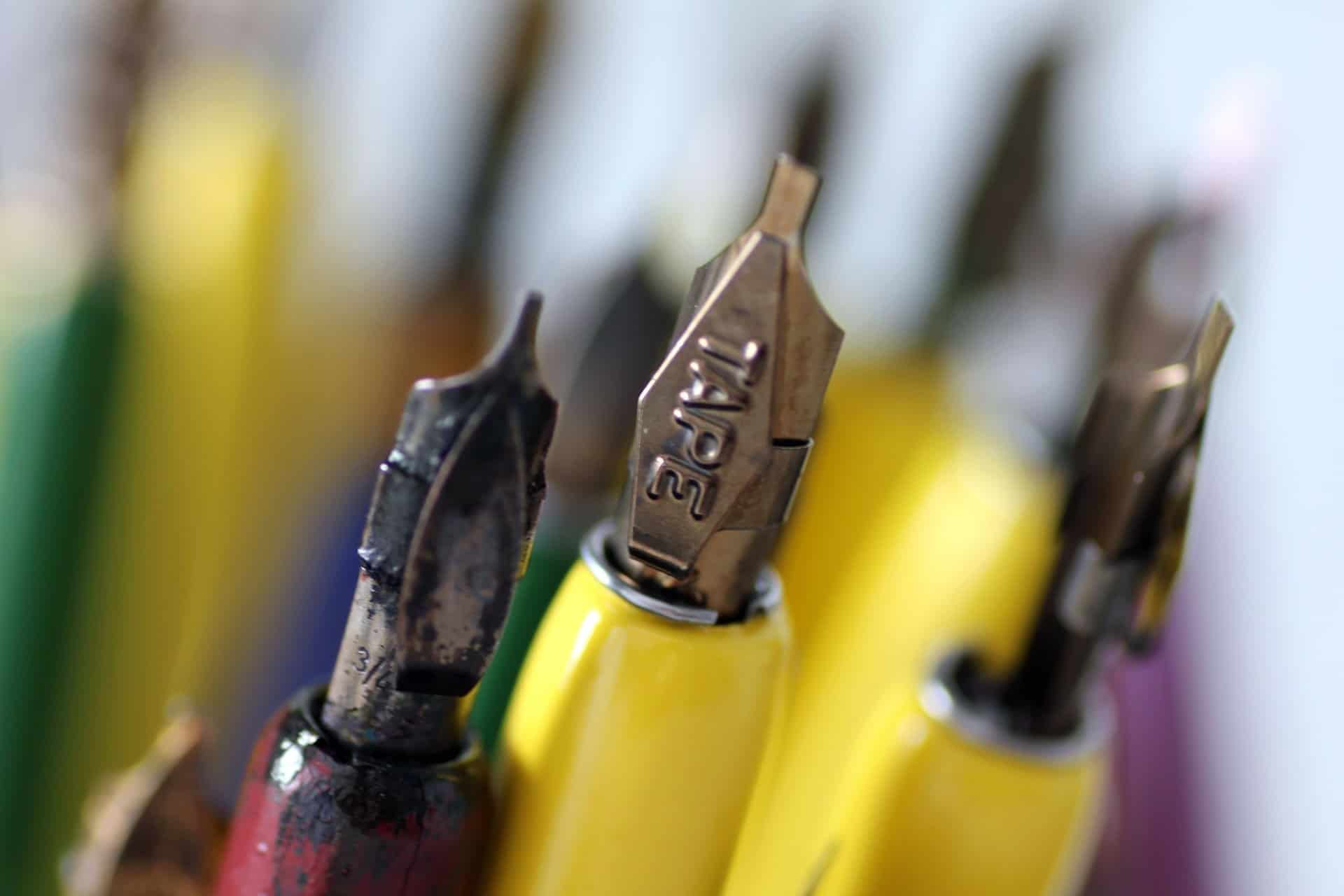Learning calligraphy is a challenging task. Having the right skills can make learning calligraphy easier and more satisfying. But what skills do you need to be a calligrapher?
To become a calligrapher, you don’t need good handwriting or artistic skills. Anyone can learn calligraphy – all you need are skills like patience, self-discipline, determination and a love of the process of creating something. You also need not be afraid of getting out of your comfort zone by selling or sharing your calligraphy efforts with others. You should love experimenting since calligraphy allows for using different mediums, techniques and art forms. Calligraphy involves learning about composition and structure – if you don’t like learning, then calligraphy is not for you! Most of all, you must have realistic expectations of how quickly you will learn calligraphy.
Let’s go through the different skills you need to be a calligrapher.
Patience
Although calligraphy is not difficult to learn, it is a challenge to master. When you start learning calligraphy, it is easy to become demotivated when your calligraphy efforts don’t look the way you want. Even the most experienced calligrapher does not have perfectly formed letters whenever they pick up a calligraphy pen. Be patient when your letters are imperfect; remember, practice makes perfect! Consider developing small rewards for reaching specific milestones in your calligraphy journey.
Calligraphy requires a lot of practice to build muscle memory. Building muscle memory takes time, and you may have to write the same letter or combination of letters several times before you get it right. Patience is also essential in the physical process of creating individual letters. It is crucial to learn to slow down and create each slowly while focusing on the different individual strokes making up a letter
Determination

Doing calligraphy drills can drain your energy and lead to high frustration levels. Remember that every time you practice, you get better. Becoming a calligrapher is not a short-term goal; it may take years to master all the different styles and techniques. Some projects will take many tries before you succeed in getting them right. You must have strong determination to succeed, especially when you feel your progress is too slow and you feel like quitting calligraphy.
Self-discipline
To progress with calligraphy, you must have a lot of self-discipline to force yourself daily to practice calligraphy. Self-discipline is especially important when you are feeling demotivated. You don’t have to practice several hours every day, but try to build a consistent habit of practising between 20 – 60 minutes each day. Consistency in practice is vital when learning calligraphy.
Not being afraid of getting out of your comfort zone
Practising the same thing over and over can become monotonous. If you already know you are competent in a specific style or project, try challenging yourself and your calligraphy skills by opening an Etsy shop, for example. This may make you uncomfortable, but you will learn new skills and work with customers by trying challenging things. If you think your calligraphy is not yet good enough, remember to have clear photos of your work in your Etsy shop. If someone sees your photographs and places an order, it means they like your work! It means your work is good enough for them. Having customers to do calligraphy projects for also gives you new and exciting ways to practice your calligraphy. It will also make you feel like you are making a fantastic process of learning calligraphy if you can earn some money from small calligraphy projects! It can be a great confidence booster!
A love of being creative
Although there are traditional calligraphy styles, calligraphy is a creative hobby. Calligraphers can use traditional or modern tools to create new projects or styles. Calligraphers can combine calligraphy with different art forms, such as watercolour painting, to create new and exciting projects.
A love of experimenting with different mediums and techniques

Continuously practising calligraphy does not have to be boring! When you have learned the basic techniques with a cartridge pen, try using a dip pen for a broader scope of projects. When you try different mediums, techniques and projects, it will enrich your practising fun and interesting. It will help increase your motivation to continue practising. Why not try various coloured inks or pens? Or what about trying different types of projects? If you usually do letters only, try doing words or complete sentences. Mix colours and try ombre calligraphy – the possibilities are endless!
A willingness to learn
Calligraphy looks like a lot of fun, and it is. People tend to forget that learning new things usually involves a bit of a learning curve. Similarly, there is a lot of learning when you embark on a journey to be a calligrapher. Some critical lessons include learning about composition and forming letters. Your eyes need to be trained to see the details and proportion of letterforms. Some of this learning is just theory, but practising composition and forming letters is a physical process that may take time to learn.
Willingness to share your creations
Sharing your creations with others can be one of the biggest motivators. If you are not ready to open an Etsy shop, try making things for friends and family members. Making something with someone special in mind or even just giving one of your more successful practising outcomes to a friend or family member will delight them, but will make you feel like you are making progress in becoming a calligrapher.
Be realistic in your expectations
Although Instagram and Pinterest can be excellent sources of inspiration, be realistic in your expectations. Don’t compare your initial projects with projects done by people with many years of calligraphy experience. Everyone has to start at the beginning. As long as you practice consistently, you would grow your calligraphy skills. Take pictures of your practices and projects and when you are feeling frustrated and discouraged, look at how much progress you have made since you started your calligraphy journey! You will be surprised at how much one can learn in a short time if you practice regularly.
If you were wondering what skills you need to be a calligrapher, you can now see that anyone can learn calligraphy if they have the right mindset and self-discipline to keep trying even when a letter seems too tricky to get right. Moreover, continuous practice will build your skills over time and soon you will have a portfolio of calligraphy projects to show off to others! Learning calligraphy will not only make you better at calligraphy but also make you a better person with improved self-discipline and more patience.
